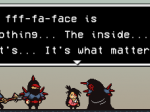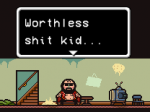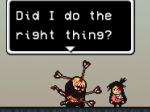After having finished Undertale‘s review I realized I had played yet another game that leaves me in tears. And I do this a lot—I write about games that leave me terrified, sad, and/or crying. They touch upon uncomfortable subjects such as child abuse, medical abuse, mental illness, disability, institutional violence, and other similar subjects. Were I paid to do it would be one thing, but this is a labor of love for me. I choose what I review and could easily stick with heartwarming and happy videogames. This begs the question of the article: Why do I do this to myself?
 Remember Me, with themes such as police brutality, sexual assault by figures of authority, and police state surveillance.
Remember Me, with themes such as police brutality, sexual assault by figures of authority, and police state surveillance.
Many people still look at videogames as these forms of childish entertainment, lacking any sort of depth and serving as mindless entertainment. This resulted in a surprising revelation that videogames often have content that’s wildly inappropriate for children, sparking media outrage. This seeming nonsequitor builds into this point: Videogames aren’t just mindless fun. They’re vehicles to tell powerful, captivating, and above all, interactive stories. Much like books, movies, and other artistic media, videogames don’t have to be all fun and games with their stories. Not all movies, books, or other pieces of art share the same artistic themes and moods, and videogames shouldn’t be the exception.
Lisa: The Painful, about a recovering addict and abuse survivor trying to redeem himself by saving the world’s only girl.
This ties into why indie development is so important, actually. The AAA videogames industry loathes taking chances, and they’ll do whatever they can to preserve the status quo. They’ll latch onto one game that succeeds and try to replicate it until someone creates the next big thing. Even when a mainstream title tries to cross the line, it is still subjected to executive meddling. However, indie developers exist in a position where they can tell that story “nobody” wants to hear. With platforms like Kickstarter, Patreon, IndieGoGo, and GoFundMe, getting money without the dreadful threat of executive meddling is easier than ever. This means it’s possible to see videogames coming out that tell dangerous, outright unpleasant stories. It’s been happening with alarming frequency, and with luck this can only continue.

This wasn’t even that bad, honestly. It just had a lot of copycats.
These unpleasant, gruesome, and often saddening stories are necessary for the medium as a whole. I don’t want videogames to stagnate, and I’m sure the readers of GameCola would not want that either. It is, in fact, being said that due to the release of so many samey videogames by big name companies and their imitators, we may be seeing a recreation of the events that caused the collapse of the North American Videogame Crash of 1983.
E.T. the Extra-Terrestrial being a flop wasn’t even the half of it—It actually sold a million copies, and in fact was a normal game for its time. The Atari 2600 had some really bad games, and reviewers just liked to exaggerate E.T. due to the critical acclaim of the movie. So many clones of so many popular games were what did it in, combined with the clones selling for considerably less; it seems like modern videogames are going down a dark path once traveled. I do believe that by telling dark and emotional stories, we can have videogames avoid such a pitfall, and perhaps save the market from collapse again.
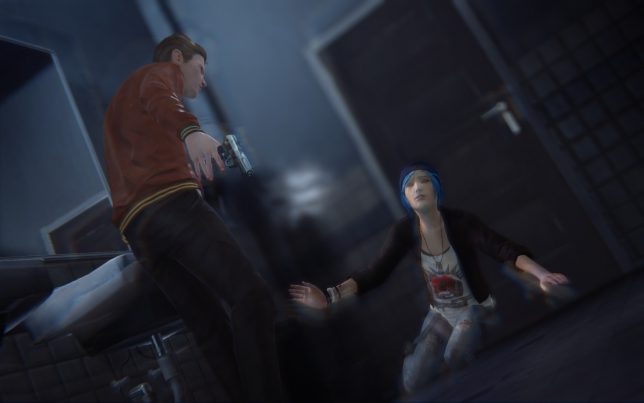 Art isn’t just about fun and pretty pictures, it’s also about emotion and reactions.
Art isn’t just about fun and pretty pictures, it’s also about emotion and reactions.
However, is all of this why I do this to myself? While I feel these stories are important for their artistic merit and the breath of fresh air they provide, that is not the reason why I enjoy them and expose myself to them. I feel like it’s meaningful to play stories that tug your emotions in various directions. It’s important to find stories and experiences that make you emotional, able to draw you in and bring out feelings beyond joy and amusement.
I feel emotionally charged videogames are more rewarding than games that try just to be “fun”; their narratives stick with you and might even make you think about why you experienced such an emotional reaction. Many of the most critically acclaimed RPGs feature intense elements designed to elicit a reaction from their player. Toying with your emotions is also an element of the horror genre, often attacking the player themselves and trying to make them feel as helpless and vulnerable as the character in the game. While other genres make use of emotional storytelling and content, these are probably the two most prominent that do it, and are especially known for taking the player down dark paths.
Though it’s not just about how rewarding they are.
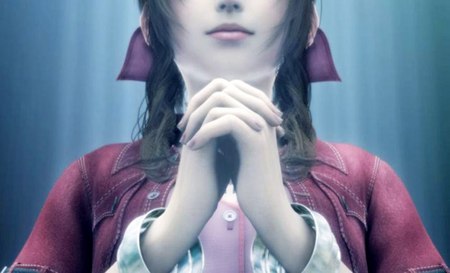
Some of the most memorable moments in videogame history were emotionally heavy.
The honest truth is that I find a story that twists my emotions up and breaks me to be more satisfying. Stories are boring without conflict, and that rings especially true when there’s no conflict between what the characters do versus what the player wants to do. Being able to do the right thing, save everyone, and get the happy ending can be satisfying—don’t get me wrong—but just imagine riding a roller coaster all the way to your happy ending?
Being put through the impossible, knowing you’re hurting people to get what you want, even losing your close friends and allies along the way all add a tension that makes the story stick that much more with you. Final Fantasy VII is remembered as one of the greatest PlayStation-era RPGs, in no short part due to the loss of a valued party member coming in out of nowhere. The Persona series is known for forcing the player to explore the often traumatic lives of their party members to get the best endings and equipment. Indie RPG Lisa: The Painful RPG forces players to sacrifice lives and limbs to protect innocence. These stories forced players into uncomfortable spots, and often come out stronger stories for it.
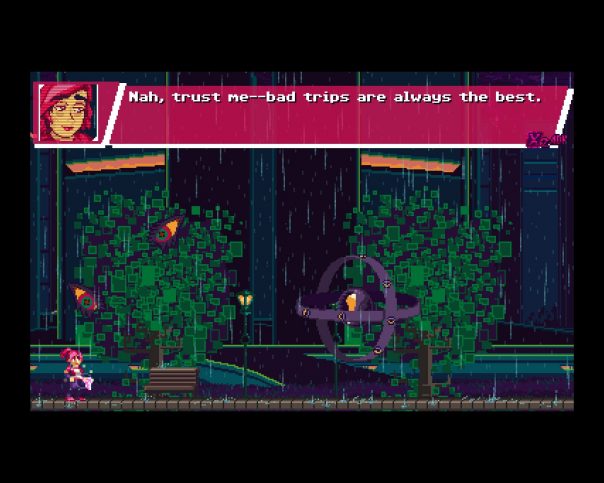
Honestly? They are, because what’s a story without conflict, hard decisions, and thought provoking discussion?
Sometimes you just have to take the bad trip, and you have to carry that weight. There’s something to be said for intentionally enduring a painful experience and coming out of it with an appreciation for what had been endured. However, there’s nothing wrong with being squeamish, or even simply seeking only fun and joy from your videogames. I just hope that while one may consider an emotionally heavy story to be a negative feature of a game (for many reasons), I hope that does not deter anyone from such games.

